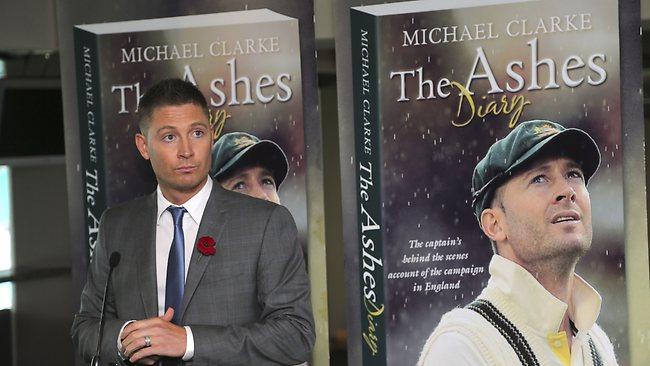Still lots to like about England's prospects on toughest of tours
LITTLE would seem to have changed as England and Australia prepare for another series. Yet, somehow, things feel different this time.

WITH the publication of his Ashes diary this week, Michael Clarke continues a long tradition. The tone of these captains' diaries, released with clockwork regularity by Steve Waugh, Ricky Ponting and now Clarke, could not be more different, though. From Waugh's triumphant boasts to Clarke's revelations of the utter chaos surrounding the early part of last summer's Ashes series, Australia moved from cricketing exemplar to laughing stock in a generation.
The excerpts released from the book, checked over by Cricket Australia to ensure that nothing too damaging to the brand slipped out, concentrate inevitably on those early chaotic days of the tour, when David Warner was sanctioned, Mickey Arthur sacked and Clarke sidelined as a selector. From what we have seen so far, his diary of the forthcoming series is going to be far less fertile ground for his ghost. Things have settled down to a remarkable degree.
Substantively, little would seem to have changed as England and Australia prepare for another series three months on. The same faces, give or take a returning Mitchell Johnson and a rising Michael Carberry; the narrowest of gaps between series, which precludes any notion that the timeline of these players' career paths can be materially different, and a margin so big in the past two Ashes series as to suggest a similar narrative. Yet, somehow, things feel a little different this time.
Australia has found some stability. The squad announced this week, without the fanfare that accompanied the corresponding announcement three years ago, contained no surprises. The batting order, so fluid as to mitigate against even the best guesswork during the English summer, is now apparent to all, even if the stampede for George Bailey has overlooked his modest red-ball returns. Warner, Chris Rogers, Steve Smith and Clarke have been in the runs, and Shane Watson and Bailey have had plenty of cricket, if not of exactly the right type.
The seam attack of Johnson, Peter Siddle and Ryan Harris picks itself, although any more injuries would affect Australia more severely than England, given the fragility of their young and promising quicks. Nathan Lyon, in Graeme Swann's shadow but not to the extent that his own qualities are hidden, has established himself beyond question, giving Ashton Agar's brief notoriety at Trent Bridge an even more remarkable feel. Watson, hamstring notwithstanding, gives the team the balance that England lacks.
If India was the catalyst last time for the disastrous run-up to the Ashes in England, this time the one-day series there has boosted confidence. The recent one-day games showed something of the inherent competitive instincts that one always took for granted with Australia. The early return of Johnson and Warner's exclusion to concentrate on first-class cricket was further evidence that Australia approaches this series with better forward planning.
Andrew Strauss's tour to Australia in 2010-11 illustrated the gains to be had from perfect preparation. A settled team played hard, first-class and winning cricket throughout the build-up, whereas this time the build-up has been characterised by injuries, a touch of confusion, poor weather and poor quality opposition.
Obviously, England is unable to do anything about the last, except to register its concern to Cricket Australia and reciprocate in time, but there is no doubt that the squad is less well prepared.
Of all the tours, I suspect that pre-Test preparation counts for more in Australia than anywhere else. There is a hardness to the conditions, particularly for bowlers who must slam 100kg frames down on to concrete-like surfaces, that demands a level of conditioning not required elsewhere. For batsmen unaccustomed to the extra bounce, it can take more than a few net sessions to adjust to shots that can carry extra risk. Technically and physically, I found Australia the biggest challenge.
After Carberry's impressive start, observers have been quick to shower praise on the selectors for their foresight. It seems both a touch premature and forgetful that announcing a new opening combination for the start of two successive Ashes series suggests something has gone wrong with the medium-term planning. England has been unable to settle on a second opener, a third seam bowler and a No 6 for some time.
Everything points to a tight encounter at the Gabba, where Australia has a fine record, and a competitive series thereafter, given that the 3-0 scoreline barely reflected the general standard of Australia's play in England. There are still enough reasons to make England favourite, from the success it has enjoyed recently against Australia, which has unquantifiable effects on young players such as Smith and Warner, who have never really tasted success against England, to the holes that can still be picked in Australia's batting.
THE TIMES



